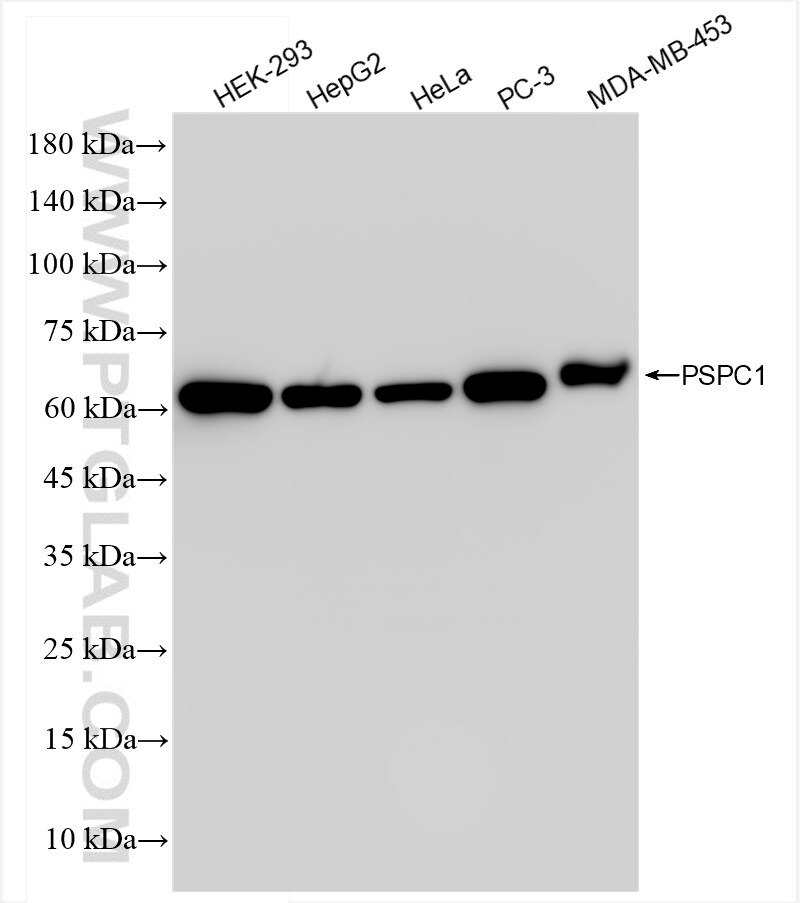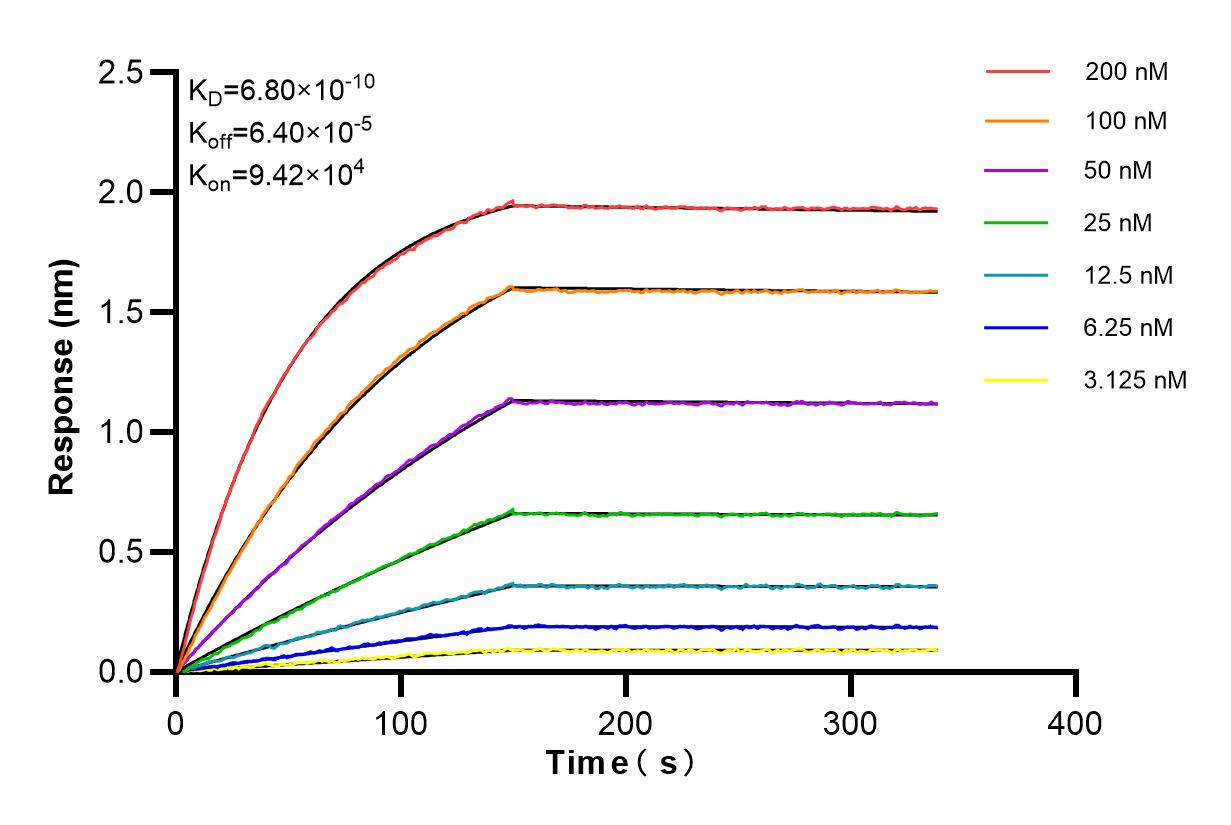Validation Data Gallery
Tested Applications
Recommended dilution
| Application | Dilution |
|---|---|
| It is recommended that this reagent should be titrated in each testing system to obtain optimal results. | |
Product Information
84657-4-PBS targets PSPC1 in WB, Indirect ELISA applications and shows reactivity with human samples.
| Tested Reactivity | human |
| Host / Isotype | Rabbit / IgG |
| Class | Recombinant |
| Type | Antibody |
| Immunogen | PSPC1 fusion protein Ag10136 相同性解析による交差性が予測される生物種 |
| Full Name | paraspeckle component 1 |
| Calculated molecular weight | 523 aa, 59 kDa |
| Observed molecular weight | 66 kDa |
| GenBank accession number | BC014184 |
| Gene Symbol | PSPC1 |
| Gene ID (NCBI) | 55269 |
| Conjugate | Unconjugated |
| Form | Liquid |
| Purification Method | Protein A purfication |
| UNIPROT ID | Q8WXF1 |
| Storage Buffer | PBS only , pH 7.3 |
| Storage Conditions | Store at -80°C. |
Background Information
PSPC1 (paraspeckle component 1), a known paraspeckle biomarker, is a putative transcription factor that belongs to the Drosophila behavior/human splicing (DBHS) family. PSPC1 was recently identified as a contextual determinant of tumor progression in multiple cancer types involving oncogenic reprogramming to switch proapoptotic TGF-β to prometastatic TGF-β via hijacking of Smad2/3 targeting. Upregulated PSPC1 is correlated with advanced tumor stages and poor survival of patients with breast, lung, and liver cancers. Upregulated PSPC1 potentiates expression of mesenchymal markers, EMT transcription factors (EMT-TF), cancer stem-like cell transcription factors (CSC-TF), and c-Myc-related proliferation genes, thus promoting migration, invasion, spheroid formation, tumor formation, and metastasis.

